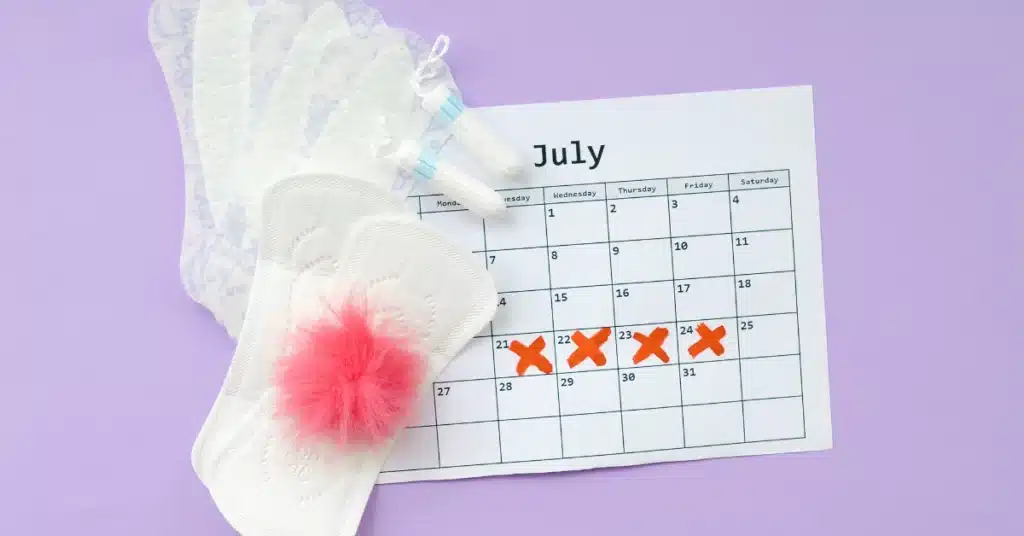Navigating Change: The Journey of Getting Off Birth Control
The decision to stop taking birth control is a significant and personal choice that many individuals make for various reasons.
Whether it’s for family planning, health considerations, or lifestyle changes, understanding the process and its potential effects is essential.
When you decide to stop taking birth control, your body undergoes several changes as it adjusts to the absence of hormonal contraception.
It’s important to note that these changes vary from person to person, and individual experiences may differ.
In this article, we’ll explore what happens when getting off birth control, how to do it safely, the benefits, and potential side effects.
What happens when you stop taking birth control

When you decide to stop taking birth control, your body undergoes a series of adjustments, primarily influenced by the cessation of hormonal contraception.
Understanding these changes is key to managing expectations and making informed decisions.
The menstrual cycle typically undergoes a period of adjustment.
Hormonal birth control often regulates the menstrual cycle, and stopping it can lead to variations in the length and intensity of your periods.
Irregular periods, heavier or lighter flows, and changes in menstrual cramps are common occurrences.
Additionally, ovulation resumes as the body adjusts to the absence of hormonal contraception.
This means that you may become fertile again, increasing the chances of pregnancy if precautions are not taken.
Consulting with a healthcare professional is advisable to ensure a personalized understanding of your specific circumstances.
How to stop taking birth control
The process of stopping birth control should be approached with care to minimize potential side effects and ensure a smooth transition.
Here are steps to consider when discontinuing birth control:
- Consult with your healthcare provider: Before making any decisions, consult with your healthcare provider. They can offer advice tailored to your health history, current medications, and reproductive goals
- Choose an appropriate time: Consider discontinuing birth control when you can monitor any changes in your menstrual cycle and overall health. Choose a time when you can manage potential side effects and discomfort
- Use additional contraception: If you’re sexually active and not ready for pregnancy, consider using alternative contraception methods during the transition period. Condoms or barrier methods can be effective options
- Monitor your menstrual cycle: Keep track of your menstrual cycle and any changes in symptoms. This information can be valuable when discussing your experience with your healthcare provider
Benefits of getting off birth control
While the decision to stop birth control is highly personal, there are potential benefits associated with discontinuing hormonal contraception.
These include:
- Understanding your natural cycle: Stopping birth control allows you to reconnect with your natural menstrual cycle. It’s important to give it about 3 months for your natural cycle to return to normal fully. Understanding your body’s natural rhythm can empower you to make informed decisions about fertility and family planning
- Personalized reproductive planning: Discontinuing birth control gives you the opportunity to explore alternative methods of contraception or plan for pregnancy when the time is right for you
Side effects of getting off birth control

While many individuals transition off birth control without significant issues, some may experience side effects as their bodies adjust.
It’s important to be aware of potential side effects and seek guidance from a healthcare professional if needed.
Common side effects include:
- Irregular menstrual cycles: As mentioned earlier, irregular periods are a common side effect. Your menstrual cycle may take some time to regulate after stopping birth control
- Acne breakouts: Hormonal changes can sometimes lead to an increase in acne. If you were using birth control to manage acne, consult with your healthcare provider for alternative solutions
- Mood swings and changes in libido: Fluctuations in hormone levels may impact mood and libido. These changes are often temporary and should stabilize as your body adapts
- Breast tenderness: Some individuals may experience breast tenderness or changes in breast size as hormonal levels readjust
- Changes in menstrual flow: The volume and duration of menstrual flow may vary. It’s normal for changes to occur as your body returns to its natural hormonal patterns
Conclusion
Choosing to stop using birth control is a personal decision influenced by factors like family planning, health, or lifestyle changes.
It’s crucial to understand the process and effects as the body adjusts after stopping hormonal contraception, affecting menstrual cycles, ovulation, and mood.
Experiences differ, highlighting the importance of personalized guidance from healthcare professionals.
Whether considering the benefits of reconnecting with the natural cycle or understanding potential side effects, making informed decisions helps ease the getting off birth control.
Remember that everyone’s journey is unique, and consulting with healthcare providers ensures a tailored approach to your specific health needs.
Frequently Asked Questions
What are the immediate effects when you stop taking hormonal birth control?
Immediate effects may include irregular periods, changes in mood, acne flare-ups, and fluctuations in libido. However, these symptoms are often temporary and tend to subside as your body adjusts to the absence of synthetic hormones.
How do I stop taking birth control?
To stop taking birth control, consult with your healthcare provider. They will guide you through the process, recommend alternative contraception if needed, and ensure a smooth transition aligned with your health goals.
Are there benefits to getting off birth control?
Yes, the benefits of getting off birth control may include a more natural hormonal balance, reduced risk of side effects, and the ability to explore alternative contraceptive methods aligned with your lifestyle.
What side effects might I experience when getting off birth control?
Side effects can vary but may include irregular menstrual cycles, mood swings, acne flare-ups, changes in libido, and the potential for unintended pregnancy. Talk to your doctor about any worries or questions you have.
WowRx uses only high-quality sources while writing our articles. Please read our content information policy to know more about how we keep our content reliable and trustworthy.






